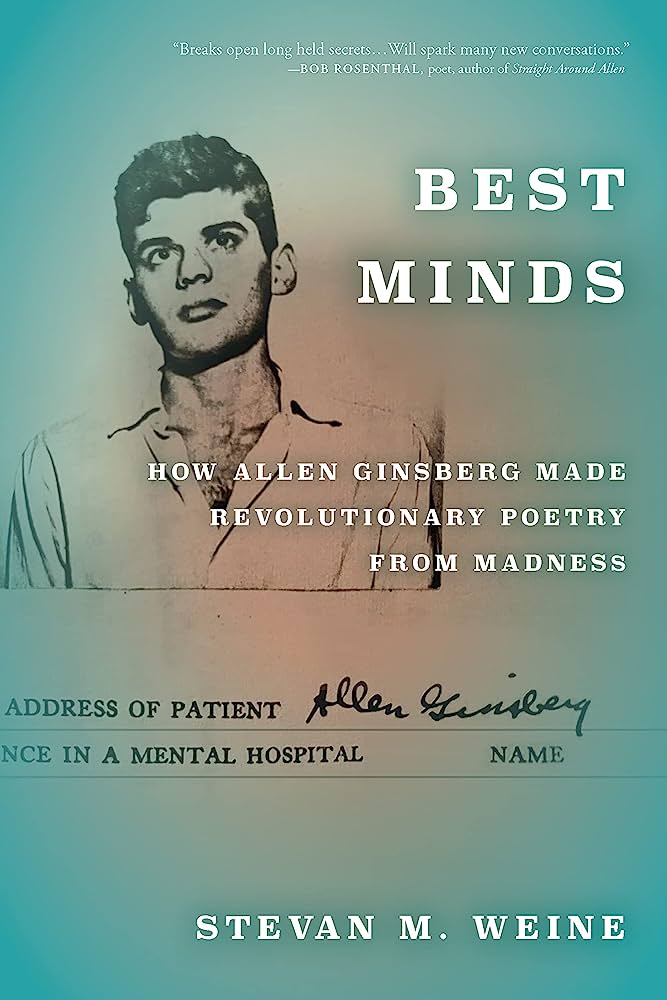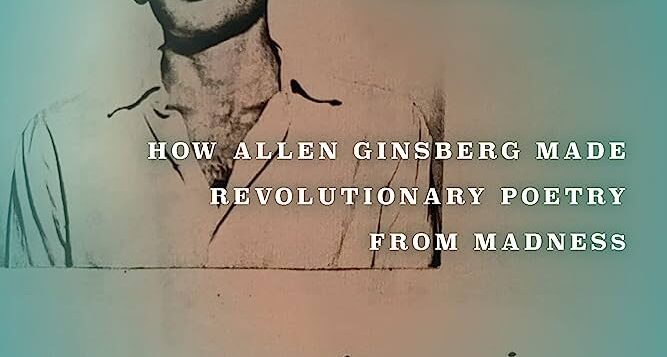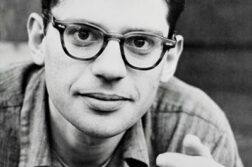 BEST MINDS
BEST MINDS
How Allen Ginsberg Made Revolutionary Poetry from Madness
by Stevan M. Weine
Fordham U. Press. 304 pages, $34.95
AS A THIRD-YEAR medical student at Columbia in the mid-1980s, Stevan M. Weine wrote to his hero, Allen Ginsberg (1926–1997), wanting to pursue research on Ginsberg’s experiences with mental illness. The poet welcomed Weine’s interest and gave him access to his medical records from his eight-month stay at a psychiatric hospital (1949–1950). Weine, now a professor of psychiatry at the University of Illinois College of Medicine, thought the author of “Howl” and “Kaddish” could help him understand “the relationships, if any, between madness and poetry, between art and life.” Published more than three decades after their first meeting, Best Minds: How Allen Ginsberg Made Revolutionary Poetry from Madness reveals what Weine learned from and about the Beat poet and counterculture spokesman who became his friend and mentor. The book combines biography, medical history, literary analysis, and memoir. It feels jumbled in places, with the narrative moving back and forth in time, but Ginsberg’s long reckoning with mental illness deserves the sustained and sympathetic attention that Weine provides.
Hilary Holladay is the author of The Power of Adrienne Rich: A Biography and Herbert Huncke: The Times Square Hustler Who Inspired Jack Kerouac and the Beat Generation.





